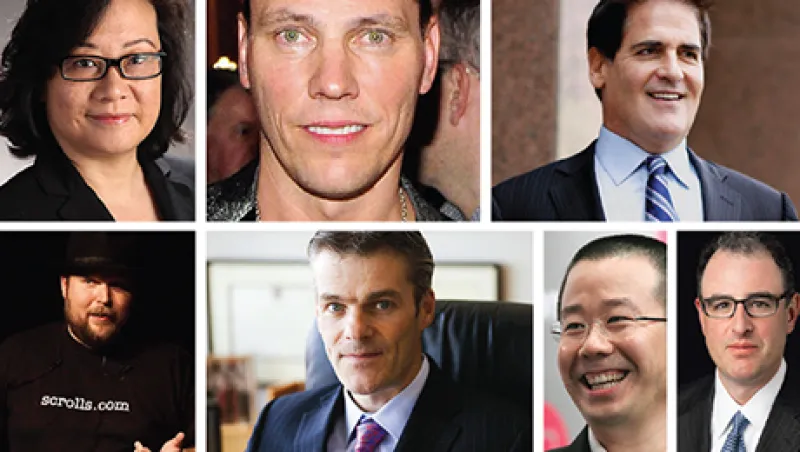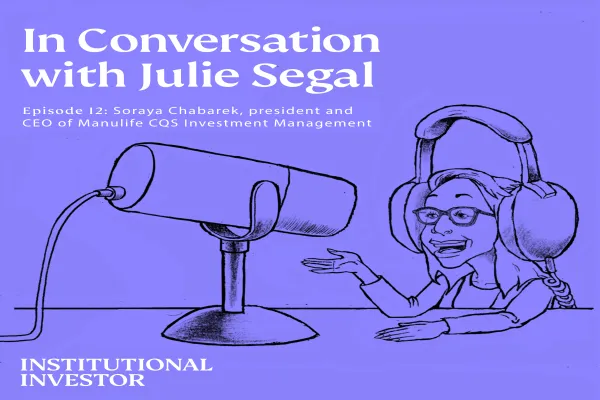Mark Cuban Missile
It’s not like
Mark Cuban to avoid the limelight. But that’s what the opinionated billionaire owner of the Dallas Mavericks NBA team claims he wants to help people do with Cyber Dust, a mobile messaging app that makes texts disappear within 24 seconds of being read. Cuban, 56, was cleared of insider trading charges last year but says his app, which launched in April, has nothing to do with facilitating unlawful activity; instead, it’s all about helping litigation-intensive businesses avoid the burdens of discovery. “You save a lot of time and money because nothing sent or received on here is discoverable,” he contends. Cyber Dust has close to 1 million users, according to Cuban, well short of rival app Snapchat’s 100 million. There’ll need to be a lot of people looking to cut down on discovery costs if Cyber Dust is to catch up.
— Aaron Timms (@aarontimms)
Minerva Tantoco: Tech Supporter
If
Minerva Tantoco succeeds as New York’s first-ever chief technology officer, the city could become a contender with Silicon Valley for capital. Previously based in Hong Kong as Asia-Pacific head of client-facing technology and innovation for UBS, the Queens native has returned home in a bid to transform old Gotham, with its spotty public Wi-Fi, into the innovation hub it’s been trying to become for the past decade and a half. Tantoco, 49, who has said she likes it when people describe her as “badass,” knows how to create from scratch: She holds four patents, in artificial intelligence and loan application processing, and worked at a software start-up early in her career. The alum of Merrill Lynch, where she oversaw a redesign of the data warehouse for the investment banking division, smartphone maker Palm and advertising giant Grey champions mobile technology, partly because it can give women more flexibility in juggling work and family. At UBS she led a shift to mobile. “Thinking back to what drew me to technology, it was its ability to transform and empower and, ultimately, drive change in all aspects of life,” Tantoco said when New York Mayor Bill de Blasio announced her appointment last month.
— Jan Alexander (@JanaNYC)
Stephen Blyth Spirit
The educational endowment world can finally exhale. On September 24, after a three-month scramble, Harvard Management Co. introduced
Stephen Blyth as the next president and CEO of the university’s $36.4 billion endowment. This news followed Jane Mendillo’s surprise June announcement that she’s retiring from the post at year-end. Now head of public markets, Blyth, 46, will inherit a very different role from the damage-control one that Mendillo assumed six years ago by taking over in 2008 at the height of the financial crisis, which saw the world’s largest endowment lose an unprecedented $10 billion. HMC grew by $3.7 billion for the fiscal year ended June 30 but remains $500 million short of its precrisis peak. U.K. native Blyth, who holds a Ph.D. in statistics from Harvard and teaches as a statistics professor there, was head of the interest rate group at Morgan Stanley and led the global rates proprietary trading group at Deutsche Bank before joining HMC in 2006. He backs Mendillo’s somewhat controversial management philosophy, which involves heavy investments in alternatives and paltry allocations to equities.
— Georgina Hurst (
@ghurst_iimag)
Janchor Investor John Ho
Thanks to their $1.7 billion private placement with Alibaba Group in 2012, a small group of sovereign wealth funds, asset managers and hedge funds tripled their money after the Chinese e-commerce conglomerate’s record-breaking $25 billion IPO on the New York Stock Exchange last month. Among them: Janchor Partners, the Hong Kong–based hedge fund firm founded by CIO
John Ho, which reaped a $400 million-plus windfall, pushing its assets to some $2.4 billion. Ho, 37, spent five years running the Asian operations of The Children’s Investment Fund Management, Chris Hohn’s London-based hedge fund firm, before launching Janchor in 2009. His secretive outfit invested about $150 million of its then $1 billion in assets in the Alibaba private placement, according to sources. Famous for his winning bets, Ho reportedly launched Janchor with just $40 million. Raised in Hong Kong and educated in Australia, he began his career in Chicago at Citadel, the hedge fund giant founded by Ken Griffin.
— Allen T. Cheng (@acheng87)
Money Spinner Tiësto
Usually, when
Tiësto gets something pumping, it’s thousands of fists moving to his thumping trance music beats. Now the superstar Dutch DJ, born Tijs Michiel Verwest, is adding venture capital to the mix. Tiësto, 45, recently participated in a $4.5 million Series A funding round for start-up Splice, headquartered in New York, with a group of investors led by San Francisco venture capital firm True Ventures and including Union Square Ventures of New York, fellow DJ Steve Angello (formerly of Swedish House Mafia) and Justin Bieber manager Scooter Braun. Splice is a cloud-based music creation platform that lets multiple users collaborate on a track, leave notes for one another and flag their changes. Including the Series A funding, which launched September 17, and a seed round last October, the project has raised $7.5 million.
— Anne Szustek (@the59thStBridge)
David Adelman’s Smokin’ Hot Promotion
Morgan Stanley tobacco analyst
David Adelman’s career is really lighting up — he’s just been tapped to direct equity research for the Americas. The Long Island, New York, native replaces Stephen Penwell, who will oversee the firm’s North American stock selection committee. Adelman, 47, began his career in 1990 at Dean Witter Reynolds, which Morgan Stanley acquired in 1997, the same year the analyst debuted on Institutional Investor’s All-America Research Team. Adelman has made the team every year since, and in 2012 he was inducted into the Hall of Fame after topping the sector for a tenth consecutive time. Morgan Stanley ranks third overall on this year’s roster, but Adelman is putting his rivals on notice. “I believe that by building on our existing offering and increasing customer focus,” he says, “we can provide an even higher-quality research product and better serve clients” — no ifs, ands or butts about it.
— Thomas W. Johnson (@tjohnson_nyc)
Markus Persson Is His Own Person
Computer geeks don’t get any more authentic than
Markus (“Notch”) Persson. In 2009, Persson launched the first version of his video game Minecraft, in which players build elaborate 3-D structures and landscapes from virtual blocks resembling Lego. Some 54 million copies later, on September 15, Microsoft bought Mojang (Swedish for “gadget”), Minecraft’s Stockholm-based developer, for $2.5 billion in cash. Mojang will become part of the U.S. software giant’s game studio division and help build out its Xbox suite. Code warrior Persson, 35, who founded the company with fellow Swedes Carl Manneh and Jakob Porsér, had grown tired of running it. “Anyone want to buy my share of Mojang so I can move on with my life?”
he tweeted on June 17. In a letter to fans after his wish was granted, Persson confessed, “I’m not an entrepreneur, I’m not a CEO, I’m a nerdy computer programmer who likes to have opinions on Twitter.” In the future, he’s likely to go easier on Microsoft, an occasional target of those views.
— A.S. 






